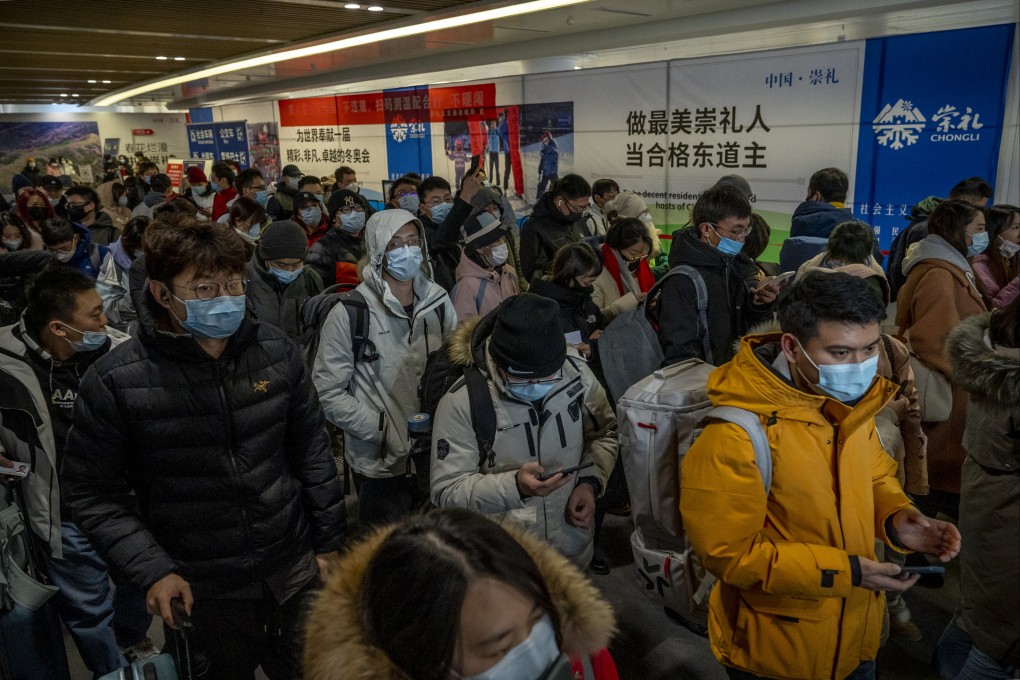Coronavirus: as Omicron spreads, Chinese cities boost efforts to prevent Lunar New Year travel
- Hefei, the capital of central Anhui province, is handing out a coupon worth 1,000 yuan (US$157) to migrant workers who choose to stay in the city over the holiday
- Municipal governments including Shanghai, Hebei and Guangxi are encouraging people not to return to their hometowns for a second year due to virus outbreaks

More Chinese regions are discouraging travel during the Lunar New Year holiday for a second year in a row, with one city of nine million people offering cash handouts to people who stay put as the first Omicron cases are detected in the world’s second largest economy.
Hefei, the capital of central Anhui province, is handing out a coupon worth 1,000 yuan (US$157) to migrant workers who choose to stay in the city between January 26 and February 9, according to a notice from the municipal government on Saturday.
Omicron cases have already spread from Tianjin to Henan province’s Anyang city, where local authorities on Monday confirmed two more infections.
“The current round of outbreaks is close to the Lunar New Year, so some regions are likely to carry out a ‘staying put’ policy, which may lead to stronger industrial production, weak consumption and declining [liquidity] injections from open market operations,” analysts with Shenzhen-based Citic Securities wrote in a note on Sunday.